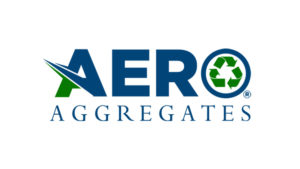Portfolio Company Spotlight
A feature on a Closed Loop Partners investment
Turning Glass Waste into Construction Materials
In the mid-Atlantic, AeroAggregates is changing the game for glass processors by producing an ultra-lightweight construction aggregate called foamed glass.
Foamed glass resembles volcanic pumice stone, but is strong enough to be used in a wide variety of road, building and infrastructure projects. AeroAggregates is the first U.S.-based manufacturer of the product, which is is less energy-intensive to produce and transport than other lightweight aggregates.
Impact Highlights
Mixed glass accounts for up to 25% of the stream of recycled materials by weight in the United States.
As of the end of 2018, AeroAggregates has diverted 32,000 tons of glass – or 146 million bottles – from landfill in the Philadelphia region. By 2025, it is estimated that over 260,000 tons will be diverted from landfills.
73,000 metric tons of GHG emissions avoided by 2025.
The greater Philadelphia area has 2.4 million households, and the typical household generates 100 pounds of glass recyclables a year, which translates to 120,000 tons of recyclable glass available each year for reuse.
Foamed glass weighs 85% less than traditional aggregates, which makes it less expensive and polluting to transport.
The market for lightweight aggregate alone is estimated at 8 million tons per year.
Key to the Closed Loop Infrastructure Fund’s investment strategy is developing new end-markets for low- and no-value post-consumer recyclable commodities, including glass, while creating value throughout the supply chain.
An investment in AeroAggregates is accomplishing both aims. AeroAggregates is the first company of its kind in the United States, using glass to produce an ultra-lightweight construction aggregate and in doing so, creating a valuable new revenue stream for local MRFs.
By closing the loop for glass, AeroAggregates is also changing the profitability of materials recovery facilities (MRFs). Aero’s business model recognizes that MRFs need to receive value for their glass, which creates two streams of economic benefits: fees for the purchase of glass, and avoided landfill tip fees for glass that MRFs may have previously been unable to sell because of limited end-uses.

